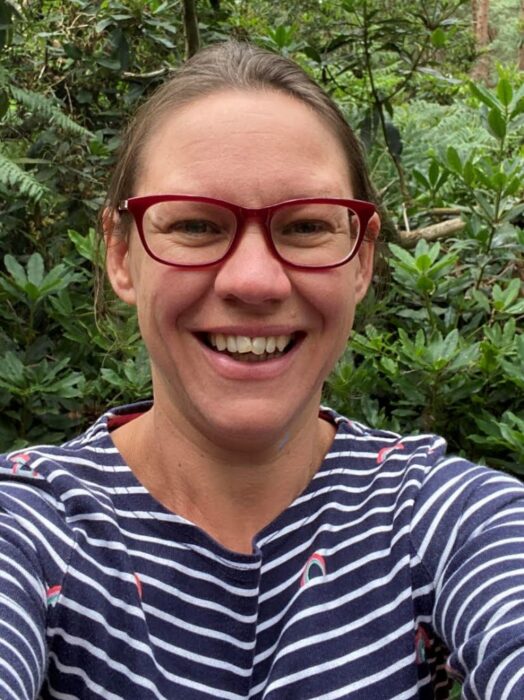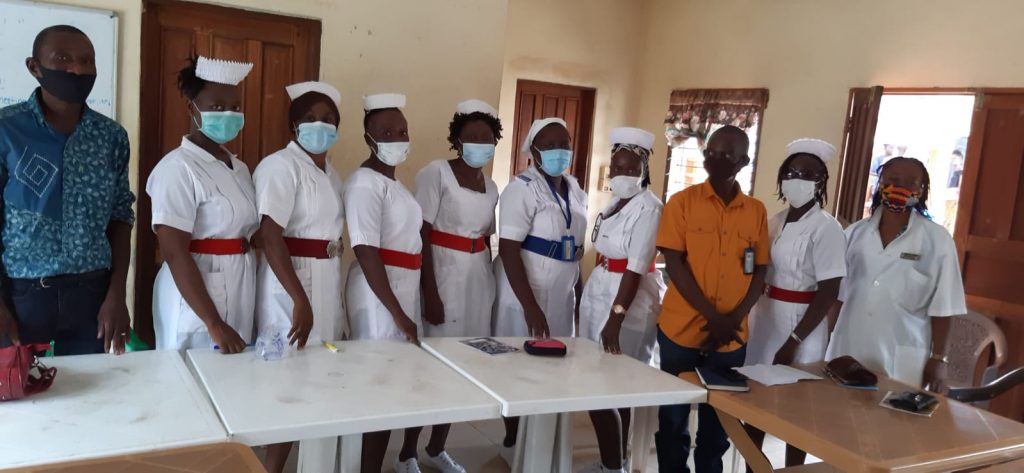By Marimba Carr, Public Health Registrar (ST5) and Global Health Fellow
In this blog, Marimba shares her experiences starting her Global Health Fellowship and working with the stroke rehabilitation partnership team.

Marimba is currently a Public Health Speciality Registrar in the East of England. Since 2018 she has worked on a range of initiatives in Local Authority, Health Protection and Screening and Immunisation placements as part of her training.
An opportunity to get involved in Global Health
Earlier this year I saw an opportunity to apply for a Global Health Fellowship offered through Health Education England (HEE) and Cambridge Global Health Partnerships (CGHP). I was (and still am!) very excited about the opportunity even though I wasn’t entirely sure what it was going to involve! I was keen to learn about the health system in a country other than the UK. Having grown up in a rural part of South Africa I was sure my background, as well as my public health skills, would give me helpful insights to contribute to a global health partnership. So, I applied, was successful in my application, and started my 12-month (one day per week) fellowship in October 2021.
Choosing a health partnership?
Cambridge Global Health Partnerships manage several established partnerships (more details can be found here). I chose to be involved with the partnership focussing on developing stroke rehabilitation services in a government referral hospital in Bo, Sierra Leone. My reasons for choosing this partnership included:
- A small, dedicated project team was already established with direct links with Bo hospital who are passionate about their work
- Stroke prevention and management includes both public health and clinical elements, with the opportunity to influence at various levels
- It provided opportunities to meet my expectations of the fellowship, and more!
What have I done so far?
I have been working on a Health Needs Assessment (HNA) – a systematic approach to understanding the needs of a population. This will compliment and add to the work and progress that has already been made by the partnership. The HNA sets the context for the work, including describing the problem and identifying what initiatives are currently in place for stroke prevention and management in Bo. It also identifies evidence-based, context-specific recommendations of what further initiatives should be implemented and informs the development of the hospital stroke rehabilitation unit.
What have I found out so far?
Below are just a few highlights from the information I have collated so far for the HNA:
- In Sierra Leone, health expenditure per capita is $86 per year, compared to $4,315 in the UK (World Bank Data, 2018)
- Stroke is the 6th highest leading cause of death in Sierra Leone (2019)
- Studies have found that stroke affects younger people in Sierra Leone, and the proportion of those that die in hospital following a stroke is also relatively high
- Capacity, both in terms of numbers, skills, and distribution of Human Resources for Health, is one of the main barriers to improving the health care
- An important barrier to accessing health services is the cost of services and the inability of the population to financially access services
- 60% of the population in Bo live in rural areas, where access to healthcare is more limited. Access to transport to access healthcare, including ongoing rehabilitation, is a barrier.
- Cultural and spiritual beliefs can delay or prevent people accessing healthcare following a stroke
- With a growing and ageing population, preventing and managing non-communicable diseases such as stroke is becoming an increasing priority.
What are the next steps?
Once I’ve completed the HNA, I will have clear recommendations for action. I will work with the project team to agree how the recommendations can be implemented to maximise the potential from the work.
My initial thoughts are that there needs to be an increased focus on primary and secondary prevention interventions (with my public health hat on!) to prevent individuals from having a stroke, and to manage risk factors such as hypertension. The partnership has recently been awarded a grant from The Burdett Nursing Trust to train five local nurses in Sierra Leone in leadership skills whilst running project focused quality improvement work. This is a great opportunity to support prevention work such as a public information on risk reduction campaign.
For the development of the stroke rehabilitation unit, the clinical staff are the experts. I am finding themes in the literature which will be relevant and hopefully helpful. Included here are how to make the most of the staffing in limited resource settings, the importance of developing a stroke register, and consideration of the wider factors such as transport, financing and health beliefs in the development of the stroke pathway.
How can you help?
This life-saving work is dependent on funding. There are a number of ways you can get involved, including buying artwork, a virtual walk (or other means of travel) or giving a one-off donation. All support welcome!
- Purchase a piece of art through our Art for Sierra Leone
- Virtual walk to Sierra Leone: Virtual walk to Sierra Leone – 7004 km Cambridge to Bo. We aim to be there by March 2022. Join free on Strava App
- Donate to our Just Giving page.
Click here to read more about partnership lead, Patrick Lebbie, and the start of the Sierra Leone Stroke partnership.

Nursing team in Bo with partnership lead, Patrick Lebbie (left).
Return to blogs
